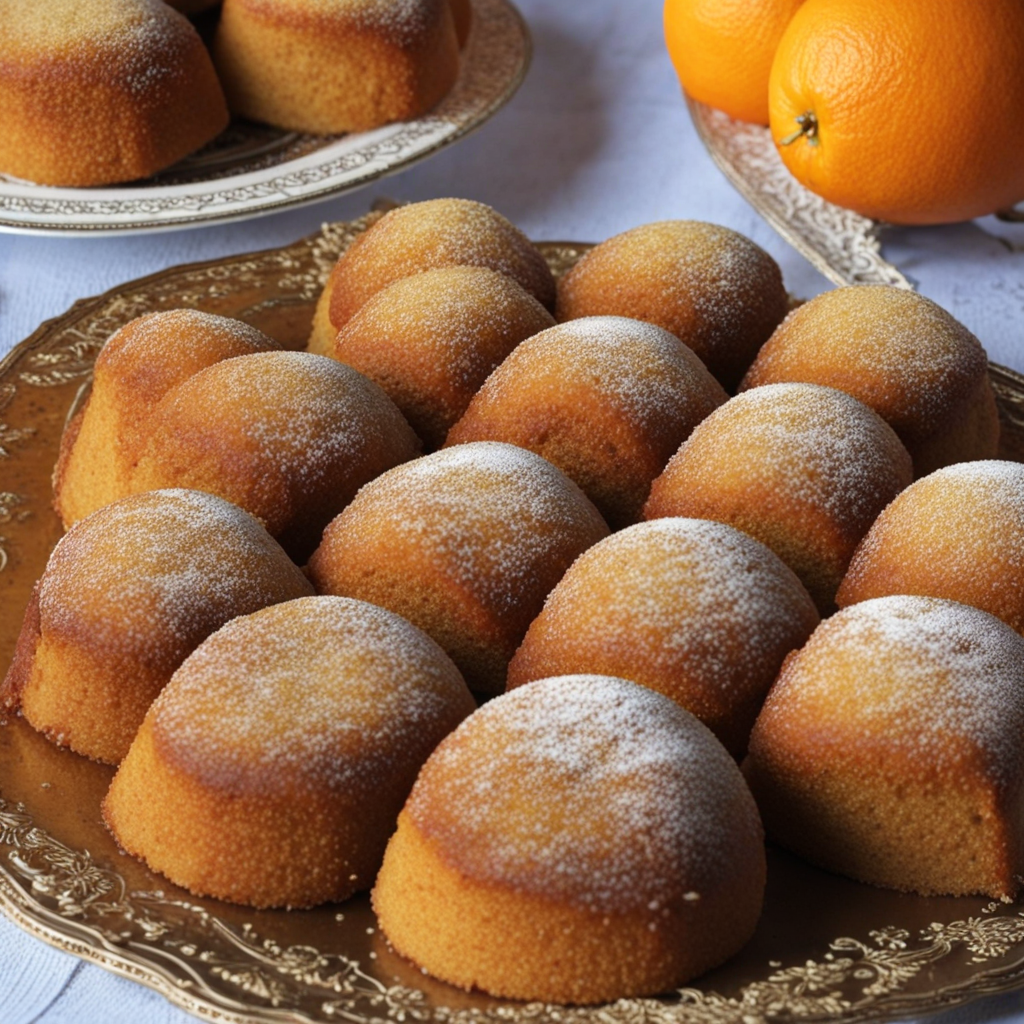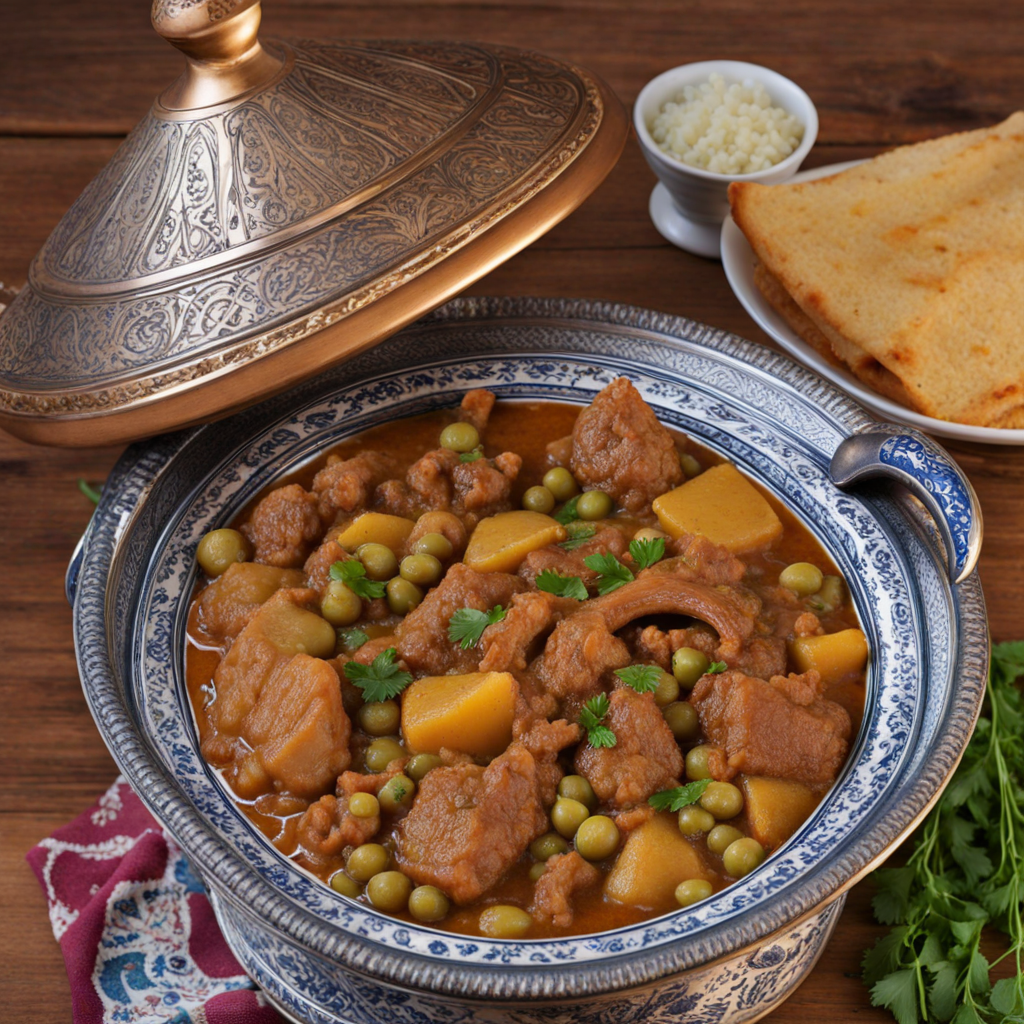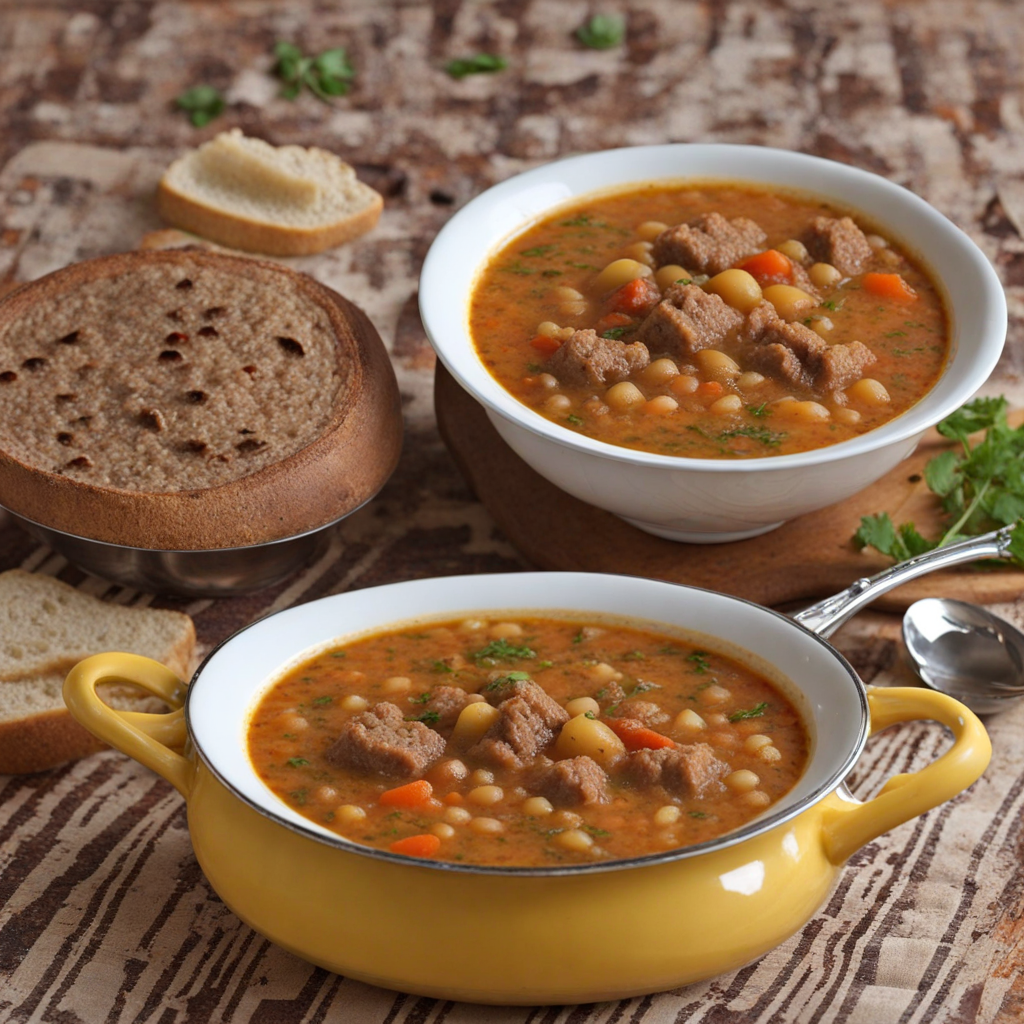Basma
Basma is a delightful Algerian dish that showcases the rich culinary heritage of the region. This traditional preparation is often made using semolina, which is a staple ingredient in North African cuisine. The semolina is skillfully blended with various spices, often including cinnamon and nutmeg, which impart a warm and fragrant aroma to the dish. The texture is both coarse and soft, creating a unique mouthfeel that is both comforting and satisfying. Basma is typically served as a dessert, often garnished with a sprinkle of powdered sugar or nuts, adding a delightful crunch and visual appeal.
How It Became This Dish
The History of بسمة (Basma) in Algeria Basma, a traditional Algerian dish, holds a unique place in the culinary landscape of Algeria. This delectable creation is characterized by its delicate layers of pastry and a rich filling, often made from ground nuts, sugar, and a variety of spices. While its name translates to "smile" in Arabic, Basma embodies a deeper cultural significance that transcends its ingredients, representing hospitality, celebration, and the fusion of cultural identities that have shaped Algeria over centuries. #### Origins The origins of Basma can be traced back to the rich tapestry of Algeria's culinary history, which is influenced by Berber, Arab, Ottoman, and French cultures. The Berbers, the indigenous people of North Africa, have a long-standing tradition of using nuts, particularly almonds, in their cuisine. These nuts were often combined with honey and spices, creating sweet confections that were served during festivals and special occasions. The introduction of various spices and techniques from Arab traders and Ottoman rulers further enriched these recipes. The historical context of Algeria is essential in understanding the evolution of Basma. The Maghreb region, where Algeria is located, has been a crossroads of civilizations for millennia. The Arab conquest in the 7th century brought Islam and new culinary practices, while the Ottoman Empire, which controlled Algeria from the 16th to the 19th century, introduced a variety of cooking methods and ingredients. The French colonization from 1830 to 1962 also left an indelible mark on Algerian cuisine, influencing flavors and techniques. Basma is often prepared during special occasions, such as weddings, religious celebrations, and family gatherings. Its origin as a festive dish reflects the communal aspect of Algerian culture, where food plays a central role in bringing people together. #### Cultural Significance In Algerian culture, Basma is more than just a dessert; it is a symbol of hospitality and generosity. During significant life events, such as weddings, births, and religious festivals like Eid, it is customary to prepare and share Basma with family and friends. The act of offering food, particularly sweet treats like Basma, signifies warmth, welcome, and the joy of togetherness. Basma also has a unique place in the context of Algerian identity. The dish serves as a culinary emblem that reflects the country's history and the blending of various cultural influences. It embodies the resilience of Algerian traditions amidst changing times and the endurance of culinary heritage in a globalized world. The preparation of Basma often involves the entire family, with each member contributing to its making, thus reinforcing familial bonds and the transmission of culinary knowledge from one generation to the next. #### Development Over Time As Algeria transitioned through various historical phases, so too did the recipe and preparation of Basma. In the early years, the dish was primarily made with simple, locally sourced ingredients—mainly almonds, flour, and honey. The traditional preparation involved hand-rolling the dough and meticulously layering it with the nut filling, a labor-intensive process that showcased the cook's skill and dedication. These early versions of Basma were often less sweet, allowing the natural flavors of the nuts to shine through. With the passage of time and the influence of different cultures, the recipe for Basma began to evolve. The introduction of new ingredients, such as sugar and modern flavorings like orange blossom water or rose water, added complexity to the dish. This evolution was particularly pronounced during the French colonial period when French culinary techniques began to influence Algerian cooking. The use of butter and cream became more common in the preparation of Basma, leading to a richer, more indulgent dessert. The post-independence era saw a revival of national pride in Algerian culture, including its culinary heritage. Chefs and home cooks alike sought to preserve traditional recipes while also experimenting with modern interpretations. Today, Basma can be found in various forms, from the classic layered pastry to innovative variations that incorporate different nuts, fillings, and even contemporary presentation styles. Some chefs have embraced fusion cuisine, creating unique versions of Basma that combine traditional elements with global flavors. In recent years, there has been a growing interest in Algeria's rich culinary heritage, both within the country and among the diaspora. Food festivals, cooking classes, and culinary tourism have contributed to a renewed appreciation for traditional dishes like Basma. This resurgence has also been fueled by social media, where food enthusiasts share recipes and photographs, fostering a sense of community and connection among those who cherish Algerian cuisine. #### Conclusion Basma is more than just a beloved dessert in Algeria; it is a testament to the country's rich cultural heritage and the enduring spirit of its people. From its origins in ancient culinary traditions to its modern-day interpretations, Basma reflects the complexities of Algerian identity and the significance of food as a medium of social cohesion. As Algeria continues to navigate its place in the global culinary scene, Basma remains a cherished symbol of tradition, hospitality, and the joy of sharing food with loved ones. Through every layer of pastry, every sprinkle of nuts, and every sweet bite, Basma invites us to experience the warmth and richness of Algerian culture, one smile at a time.
You may like
Discover local flavors from Algeria







